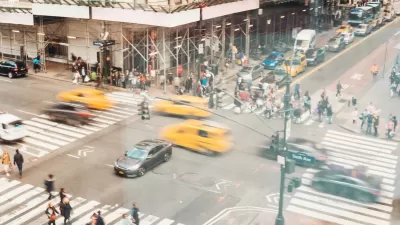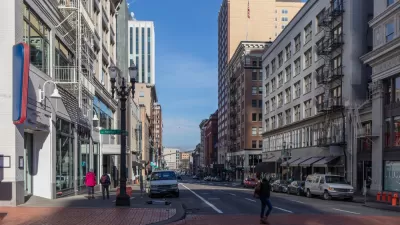Bloomberg News investigates a rash of road deaths in the Midland-Odessa region, attributing the fatalities to underfunded road infrastructure, increased population, and truck traffic. A November ballot measure may provide some relief.
"Drivers in the 12-county Odessa district were 2.5 times more likely to be killed in crashes in 2010 than the rest of Texas on average, according to Midland-Odessa Transportation Alliance Inc., a business-backed organization in the region," write Mark Niquette and Rodney Yap
Ballot Measure 1
"A constitutional amendment on the November ballot in Texas would allow an estimated $1.7 billion portion of annual oil-and-gas tax revenue to be allocated for highway work instead of going to a state rainy day fund," write Niquette and Yap. According to a Dallas News opinion in support of it, "(t)he state gas tax has not been adjusted since 1991 and vehicle registration fees have not significantly changed since 1987."
However, the writers add that "(e)ven if the ballot measure passes, the state would be about $4 billion a year short of what’s needed just to keep the system performing at current levels, said David Ellis, a researcher at the Texas A&M Transportation Institute who testified before a state legislative committee in May."
An updated 2011 study from the Texas Transportation Commission concluded that the state needs increased revenue for infrastructure. Those sources could include a higher gas tax and registration fees, which politicians have previously rejected. Texans pay no income tax and less in transportation fees than residents of 43 other states, the report said.
According to the American Petroleum Institute, the state 20-cent gas tax ranks #42 in the nation [PDF].
[Hat tip to POLITICO Morning Transportation,10/15/14]
FULL STORY: Texas Highways Deadliest as Anti-Tax State Curbs Roadwork

Planetizen Federal Action Tracker
A weekly monitor of how Trump’s orders and actions are impacting planners and planning in America.

Restaurant Patios Were a Pandemic Win — Why Were They so Hard to Keep?
Social distancing requirements and changes in travel patterns prompted cities to pilot new uses for street and sidewalk space. Then it got complicated.

Maui's Vacation Rental Debate Turns Ugly
Verbal attacks, misinformation campaigns and fistfights plague a high-stakes debate to convert thousands of vacation rentals into long-term housing.

In California Battle of Housing vs. Environment, Housing Just Won
A new state law significantly limits the power of CEQA, an environmental review law that served as a powerful tool for blocking new development.

Boulder Eliminates Parking Minimums Citywide
Officials estimate the cost of building a single underground parking space at up to $100,000.

Orange County, Florida Adopts Largest US “Sprawl Repair” Code
The ‘Orange Code’ seeks to rectify decades of sprawl-inducing, car-oriented development.
Urban Design for Planners 1: Software Tools
This six-course series explores essential urban design concepts using open source software and equips planners with the tools they need to participate fully in the urban design process.
Planning for Universal Design
Learn the tools for implementing Universal Design in planning regulations.
Heyer Gruel & Associates PA
JM Goldson LLC
Custer County Colorado
City of Camden Redevelopment Agency
City of Astoria
Transportation Research & Education Center (TREC) at Portland State University
Camden Redevelopment Agency
City of Claremont
Municipality of Princeton (NJ)





























